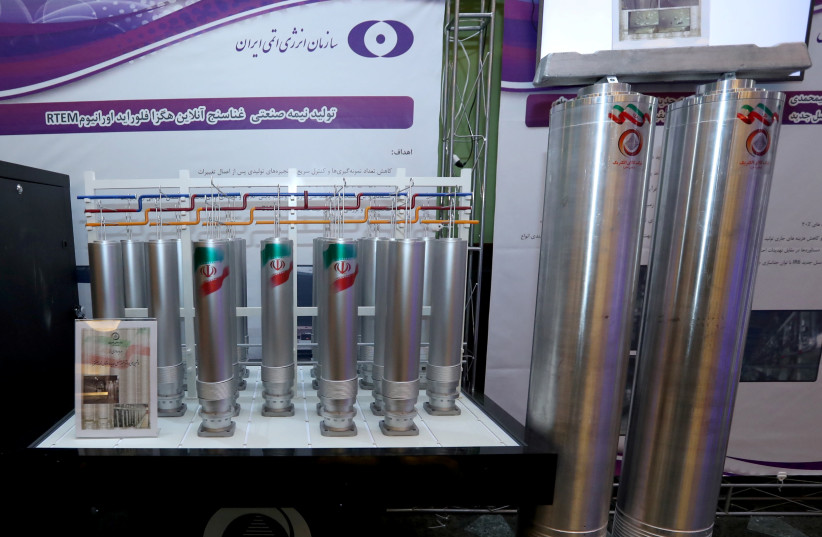IAEA Chief Rafael Grossi on Monday told the IAEA Board of Governors, concerning Iran’s nuclear advancement, that “the agency has lost continuity of knowledge about the production and inventory of centrifuges, rotors and bellows, heavy water and uranium ore concentrate.”
“It is three years since Iran stopped provisionally applying its additional protocol and therefore it is also three years since the agency was able to conduct complementary access in Iran,” Grossi said, describing large gaps in nuclear inspections.
Next, he referred to a recent Iranian nuclear official who said that all aspects of the nuclear weapons cycle are complete and that the only obstacle to Tehran producing a nuclear weapon is the political decision to do so.
Grossi said, “Public statements made in Iran regarding its technical capabilities to produce nuclear weapons only increase my concerns about the correctness and completeness of Iran’s safeguard declarations.”
In addition, he warned, “You will note that Iran’s stockpile of enriched uranium continues to increase, even though the level of uranium enriched up to 60% has fallen slightly.”

Further, the IAEA chief stated, “There has been no progress in resolving the outstanding safeguard issues. Iran has not provided the agency with technically credible explanations for the presence of uranium particles of anthropogenic origin at Varamin and Turquzabad or informed the agency of the current location(s) of the nuclear material and/or of contaminated equipment.”
Iranian nuclear violations were uncovered in 2018
These Iranian nuclear violations were uncovered by a Mossad raid in Tehran in 2018.
Moreover, Grossi flagged there are discrepancies regarding the nuclear material balance Iran has given in different reports. While some discrepancies have been resolved, he said that others required additional investigation.
He said that “Iran also needs to implement modified Code 3.1 which is a legal obligation for Iran… to assure that Iran’s nuclear program is exclusively peaceful.”
Discussing specific inspection problems, he said, “I am seriously concerned that Iran has unilaterally stopped implementing the Joint Statement, which raises doubts that Iran remains committed to what we have agreed. I also deeply regret that Iran has yet to reverse its decision to withdraw the designations for several experienced agency inspectors.”
In a separate press conference also on Monday, Grossi said that he was extremely “frustrated” with Iran about this issue and the extended lack of progress toward a solution.
In September 2023, the Islamic Republic expelled eight key inspectors, including those who had caught Iran enriching uranium up to 84%, close to the 90% weaponized level.
To date, it is estimated that most Iranian uranium enrichment is up to the medium 20% or higher, but not to the weaponized 60% levels.
The 2015 nuclear deal required Iran to stay under a 5% enrichment limit.
Despite all of the above concerns from Grossi, the IAEA board is not expected to refer the nuclear standoff to the UN’s Security Council.
Indications are that the US and the West are distracted by the wars in Ukraine and Gaza, and that short of a clear sign that Tehran was seeking to break out to a nuclear weapon, there is little stomach for provoking a more intense confrontation.
Sources specifically told Reuters that the US was dead set on avoiding a confrontation between Iran and the IAEA pending the Gaza War and possibly for an even longer period pending the US election in November.
Separately, Grossi said that he had spoken this past weekend with Syria’s foreign minister about resolving questions about its nuclear program which Israel bombed in 2007.
He said he expected to visit Syria soon to address the issue more concretely.
